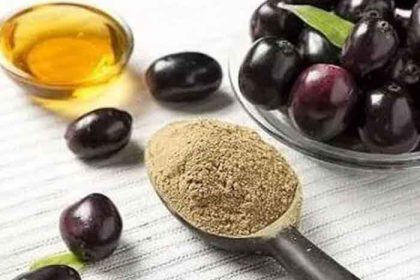Salt benefits for skin and the human body and health and teeth
Salt benefits
Salt benefits for skin and the human body and health and teeth on Nicholi site. We hope this article will be of interest to you.
Salt offers various health benefits when consumed in moderation. It helps maintain electrolyte balance, nerve and muscle function, hydration, and aids in nutrient absorption. Additionally, it can benefit dental health by reducing inflammation and controlling bacteria. However, excessive salt intake can lead to health issues such as hypertension and cardiovascular problems. Using salt responsibly and practicing good oral hygiene is key to maximizing its benefits and avoiding potential side effects.
Salt benefits
Salt, specifically sodium chloride, offers a range of benefits that are essential for various bodily functions and daily life. Let’s explore some of the key benefits of salt:
Electrolyte Balance: Salt contains essential electrolytes, primarily sodium, and potassium, which are crucial for maintaining the balance of fluids inside and outside cells. This balance is essential for proper nerve function, muscle contractions, and overall cellular health.
Hydration: Adequate salt intake helps regulate the body’s water levels, preventing dehydration. It ensures that cells receive the necessary amount of water to function optimally.
Nerve Function: Sodium plays a vital role in transmitting nerve impulses throughout the body. This is essential for communication between nerve cells and the proper functioning of the nervous system.
Muscle Function: Salt is crucial for muscle contractions, including the heart muscle, which ensures a regular heartbeat and the proper functioning of other muscle groups.
Digestion: Sodium aids in the digestion process by helping the body absorb certain nutrients. It also plays a role in the production of stomach acid, which is necessary for breaking down food.
Blood Pressure Regulation: Consuming an appropriate amount of salt is essential for maintaining healthy blood pressure levels. Proper sodium intake helps balance fluid levels, which can influence blood pressure.
Acid-Base Balance: Salt helps maintain the body’s acid-base balance, which is crucial for various metabolic processes and overall pH regulation.
Nutrient Transport: Sodium is involved in transporting essential nutrients across cell membranes, ensuring that cells receive the necessary nutrients for their functions.
Food Preservation: Historically, salt has been used as a natural preservative to prevent the growth of bacteria and spoilage in food. This property is still employed in modern food preservation techniques.
Flavor Enhancement: Salt is a fundamental seasoning in cooking, enhancing the taste of various dishes and making food more enjoyable.
Salt side effect
While salt offers various benefits, excessive salt intake can have several side effects and negative impacts on health. Here are some of the potential side effects of consuming too much salt:
Hypertension (High Blood Pressure): One of the most significant side effects of excessive salt intake is an increased risk of hypertension. Consuming too much salt can cause the body to retain excess water, leading to higher blood volume and increased pressure on blood vessel walls. Over time, this can strain the cardiovascular system and raise the risk of heart disease, stroke, and kidney problems.
Edema: High salt intake can cause fluid retention, leading to edema, which is the swelling of body tissues. This can result in puffiness, especially in the hands, feet, ankles, and legs.
Cardiovascular Diseases: Excess salt intake has been linked to an increased risk of cardiovascular diseases, including heart attack and stroke. High blood pressure, which is often associated with excessive salt consumption, is a significant risk factor for these conditions.
Kidney Issues: The kidneys play a vital role in filtering waste and excess fluids from the body. High salt intake can put a strain on the kidneys and may lead to reduced kidney function over time.
Osteoporosis: Some studies suggest that high salt intake may lead to increased calcium excretion in the urine, which could potentially weaken bones and contribute to osteoporosis.
Stomach Cancer: Some research has indicated that a diet high in salt may be associated with an increased risk of stomach cancer.
Dehydration: Paradoxically, excessive salt intake can lead to dehydration. High sodium levels can draw water out of cells and tissues, leading to increased thirst and reduced hydration.
Cognitive Impairment: Research suggests that a high-salt diet may be linked to cognitive decline and an increased risk of dementia in older adults.
Autoimmune Diseases: Some studies have indicated that a high-salt diet might trigger or exacerbate autoimmune diseases, although more research is needed in this area.
Increased Urinary Problems: Excessive salt intake can irritate the bladder and exacerbate urinary tract problems, such as urinary tract infections.
10 Importance of Salt:
Electrolyte Balance: Salt contains essential electrolytes like sodium and potassium, which are crucial for maintaining proper fluid balance in the body.
Nerve Function: Sodium is essential for transmitting nerve impulses, enabling communication between nerve cells, and supporting various bodily functions.
Muscle Contraction: Salt plays a vital role in muscle contractions, including the heart muscle, which maintains a regular heartbeat.
Hydration: Adequate salt intake helps regulate water levels in the body, preventing dehydration and supporting overall health.
Digestion: Salt aids in the digestion process by assisting in the absorption of certain nutrients.
Blood Pressure Regulation: Proper salt intake, along with a balanced diet, can help regulate blood pressure levels.
Acid-Base Balance: Salt helps maintain the body’s acid-base balance, crucial for various metabolic processes.
Nutrient Transport: Sodium is involved in transporting essential nutrients across cell membranes.
Electrolyte Replacement: During intense physical activity or excessive sweating, salt intake can help replenish lost electrolytes.
Taste Enhancement: Salt enhances the flavor of food, making it a vital ingredient in culinary practices.
Hot Water with Salt Benefits
Sore Throat Relief: Gargling with warm salt water can soothe a sore throat, reduce inflammation, and alleviate discomfort.
Nasal Congestion Relief: Inhaling steam from hot water with salt can help relieve nasal congestion and promote easier breathing.
Relaxation and Stress Relief: Soaking in a warm saltwater bath can be therapeutic, promoting relaxation and reducing stress.
10 Uses of Salt Water
Mouth Rinse: Saltwater can be used as a mouthwash to promote oral hygiene and soothe a sore mouth or gums.
Wound Cleaning: Saltwater is a natural antiseptic and can be used to clean minor wounds and cuts.
Nasal Irrigation: A saline solution can help clear nasal passages and alleviate congestion caused by colds or allergies.
Stain Removal: Saltwater can be used as a pre-treatment for stain removal on fabrics and surfaces.
Weed Killer: A concentrated salt water solution can be used as a natural weed killer.
Insect Bite Relief: Applying saltwater to insect bites can reduce itching and inflammation.
Eye Wash: A mild saline solution can be used as an eye wash to cleanse and soothe irritated eyes.
Rust Remover: Saltwater can be used to remove light rust from metal surfaces.
Skin Exfoliation: A saltwater scrub can help exfoliate the skin and leave it smoother and more radiant.
Detoxification: Soaking in a warm saltwater bath can promote detoxification by opening pores and encouraging the elimination of toxins through sweat.
Importance of Salt in the Human Body
Salt is crucial for the human body due to its role in maintaining electrolyte balance, nerve function, muscle contractions, and hydration. It aids in digestion, regulates blood pressure, and contributes to nutrient transport and oxygen delivery. However, excessive salt intake can have adverse effects on health. The recommended daily intake is around 2,300 milligrams or less. A balanced diet is essential to maximize the benefits of salt for overall health.
Raw Salt Benefits
Raw or unrefined salt, such as Himalayan pink salt or sea salt, contains essential trace minerals that contribute to better hydration, nutrient absorption, and overall well-being. It is less processed and free from additives. Incorporating salt responsibly and taking advantage of its diverse benefits can enhance overall health and well-being. As with any aspect of nutrition and health, moderation and balance are essential to optimize salt’s positive effects while minimizing potential side effects.
Salt benefits for health
Salt has several health benefits when consumed in moderation. It helps maintain electrolyte balance, nerve and muscle function, hydration, and stomach acid production, and aids in nutrient absorption. Additionally, some salts are fortified with iodine, which is essential for thyroid function. However, excessive salt intake can lead to health issues like hypertension and cardiovascular problems. The recommended daily intake is less than 5 grams. Consult a healthcare professional for personalized advice.
Salt benefits for teeth
Salt can benefit dental health when used properly. It can help reduce inflammation, soothe gum irritations, control bacteria, and provide temporary relief for dental pain. Saltwater rinses can also neutralize bad breath. However, it’s essential to use salt with caution to avoid damaging tooth enamel. Regular oral hygiene practices like brushing, flossing, and dental check-ups remain crucial for maintaining good oral health. Consult a dentist for personalized advice.



















